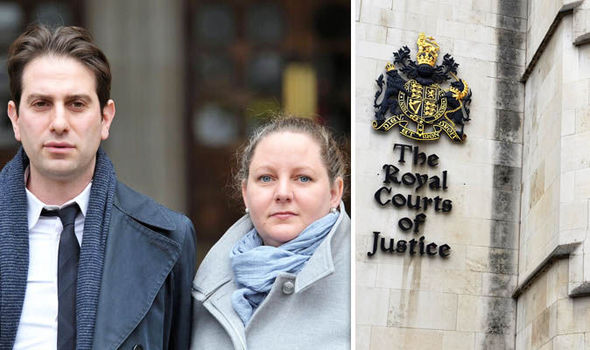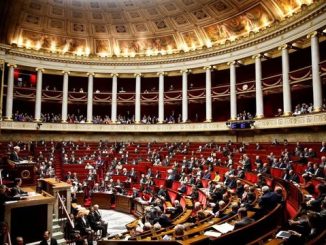
A hetrosexual couple have lost the right to have a recognized civil partnership.
Rebecca Steinfeld and Charles Keidan, from London, took their case to the Court of Appeal following a defeat at the High Court last year.
They challenged a ruling that they could not have a civil partnership because they did not meet the legal requirement of being the same sex.
The couple said they faced discrimination.
The Civil Partnership Act 2004 – which applies throughout the UK – requires that partners be “two people of the same sex”.
It grants gay couples legal rights similar to those given to married couples.
The introduction of same-sex marriage – which became legal in England, Wales and Scotland in 2014 – has since given gay couples a choice between that and civil partnership.
Kate Stewart and Matthew Cole, 46, decided to get a civil partnership in Gibraltar, a British Overseas Territory, in June 2016, after deciding marriage was not for them.
“It just felt to be a more appropriate way to formalise the recognition of our relationship,” said Dr Stewart, from Derby.
“I have been married before… but Matthew and I didn’t feel that marriage reflected our relationship.
“The institution [of marriage] is very much unequal depending on your religion.
“We therefore felt it wasn’t a status we were comfortable with because it still had hangovers of inequality from the past.”
Dr Stewart, 48, said although they believe marriage is right for some couples, it was about having the choice.
They wanted recognition of their relationship after 10 years together.
But their civil partnership is not legally recognised in the UK.
“We paid for ceremony in pounds, we have a certificate, it was all very British, but as soon as we were back home we didn’t have legal recognition,” Dr Stewart said.
“The declaration that we were both each other’s partner was quite moving… we were on an equal footing. It was surprisingly touching.”
At the High Court, Ms Steinfeld and Mr Keidan argued that, as a heterosexual couple, they did not have the same choice as gay couples and were therefore discriminated against.
Ms Steinfeld said: “When we started our legal battle for the right to form a civil partnership three years ago we could never have envisaged the incredible levels of support that would follow.
“It really is remarkable but it just speaks to the fact that opening civil partnerships is popular, fair and would be good for families and children.”
Civil Partnerships explained
- Legally recognised union between a same-sex couple
- Equal legal treatment in matters including inheritance and next-of-kin arrangements
- Partnership can be conducted in private, whereas marriage ceremonies must be public and can be conducted by clergy
- Failed partnerships require a legal dissolution, like divorce
- Political, religious and social considerations influenced choice of the term “civil partnership”
- Most campaigners accepted the title because they had secured the underlying rights
Source: bbc.co.uk






Be the first to comment